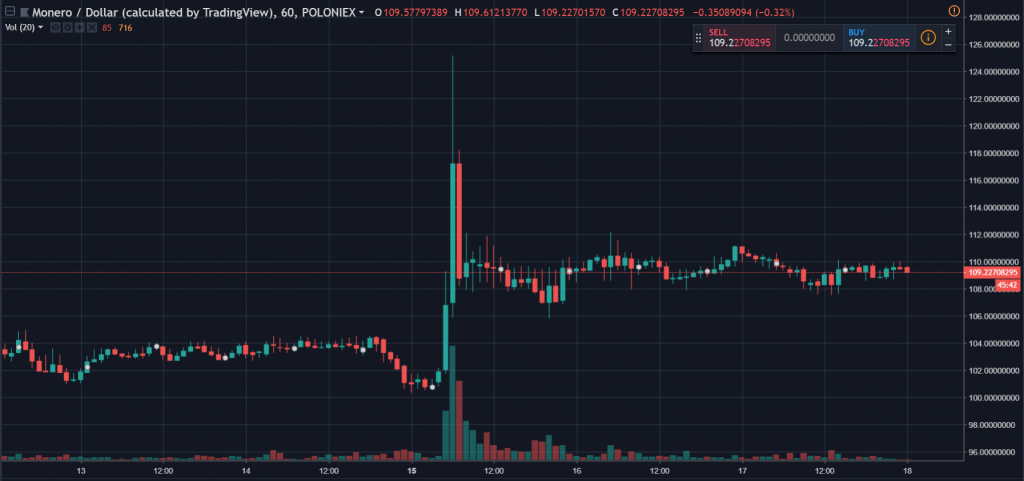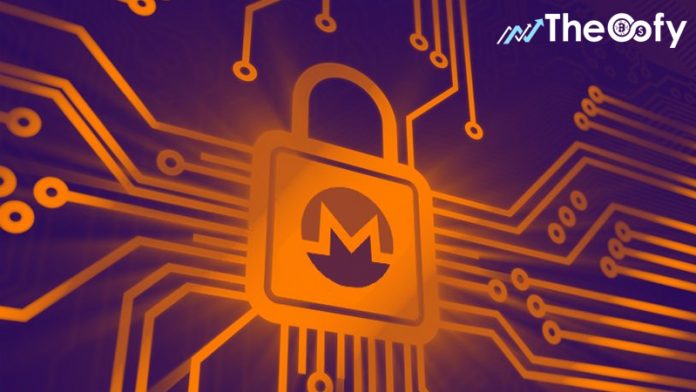Plans for Monero’s live upgrade are on course after several months of back-end developments. The team behind the development of Monero confirmed by a tweet that the planned protocol upgrade for the secure, untraceable, and resilient digital currency was right on course and would be confirmed on October 18, 2018. The upgrade focuses on a privacy-centric blockchain that will take Monero network to another level.
The information passed through the official Twitter account of the project read:
“On approximately the 18th of October, there will be a scheduled network upgrade on the Monero network. To be sufficiently prepared, a user, service, merchant, pool operator, or exchange should run [upgrade their client’s interfaces].
Many developers welcomed the move, which will see Monero network upgrade substantially to accomplish a number of goals such as improving the network’s command line interface and its graphical user interface to version 0.13.0.0
The Monero network upgrade entails two primary aspects as outlined below:
Table of Contents
The ‘bulletproofs’
According to information published on Ethereum World News in July, Kudelski, a third-party cybersecurity company revealed that it had successfully completed the security audits of the ‘bulletproofs’ protocol. The upgrade would greatly improve and transform how transactions are carried out within the Monero network. While the Kudelski audit found some “general security risks,” the cybersecurity firm admitted that bulletproofs would soon go live on the Monero main chain. However, many people are wondering, “what exactly are bulletproofs?”
Bulletproofs explained
Bulletproofs are a particular group of range proofs, which are expected to help Monero blockchain drastically minimize its average transaction sizes. This will go down by nearly 80 percent from 13.3 kB to 2.5 kB. With the blockchain technology, it is possible to directly associate smaller transactions with lower fees, because of the Proof of Work protocol on which it operates. This will be a great benefit for the Monero network, where transaction fees usually eclipse $1.00.
A drastic reduction of fees may spell many benefits for the users, but some miners are not doubtful about the sudden change in Monero protocol. However, the developers have included the interest of the miners as well. For example, the developers have confirmed previous promises to prevent ASIC mining on the Monero network.
Embracing GPU crypto miners
By resisting any form of ASIC mining, Monero network will embrace GPU crypto mining. According to a preliminary information thread, Monero seeks to launch its “PoW tweak” to “curb any potential threat of ASICs and to preserve the ASIC resistance.” Monero has a long-term goal to eliminate ASIC machines from its network because they are regarded as a centralization risk.
With the upgrade in place, many XMR-friendly platforms must prepare to initiate changes that come with it. Prior to the upgrade, some platforms withheld deposits and withdrawals to protect the security of their clients.
Even with the news of the upgrade, XMR did not react positively towards the move. According to the data gleaned from Trading View, the cryptocurrency was trading at $109.20, and down 1 percent. As of this writing, XMR trades at $103.94 with a market cap of slightly more than 207 billion.





